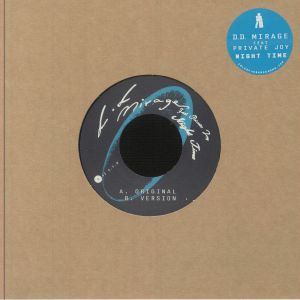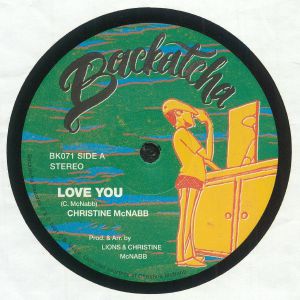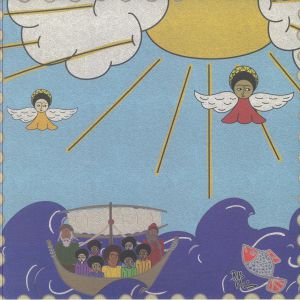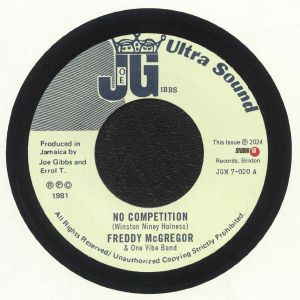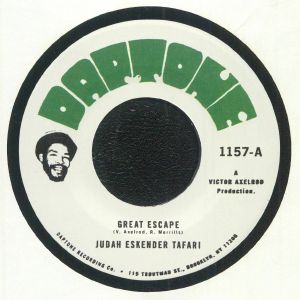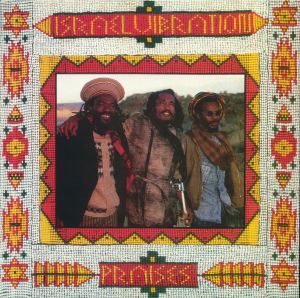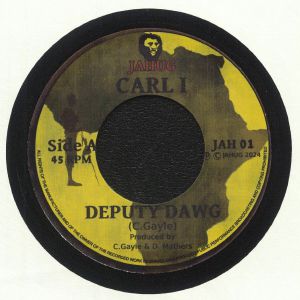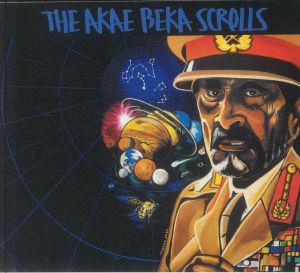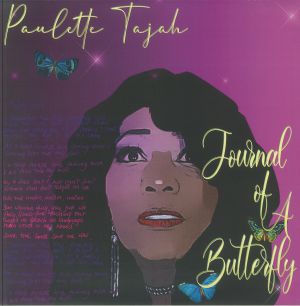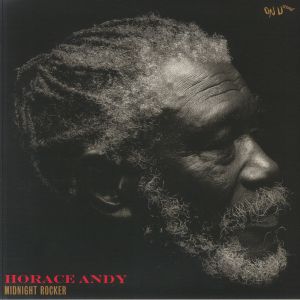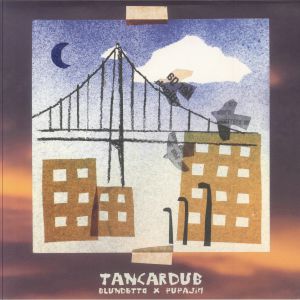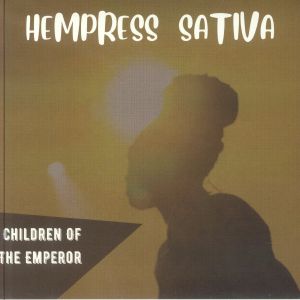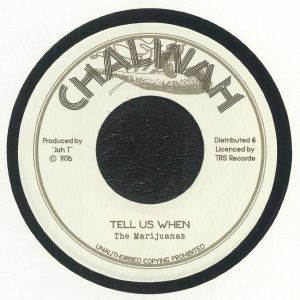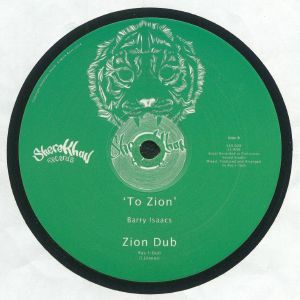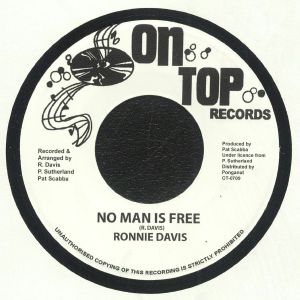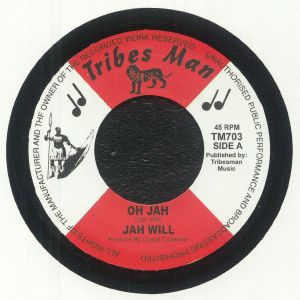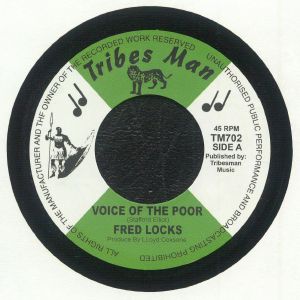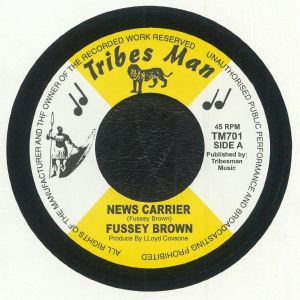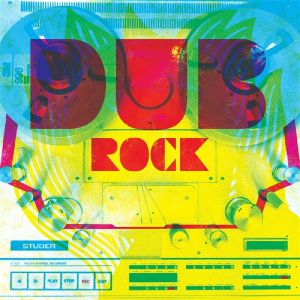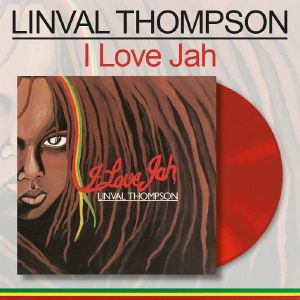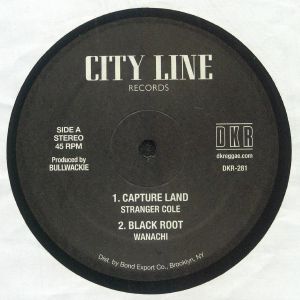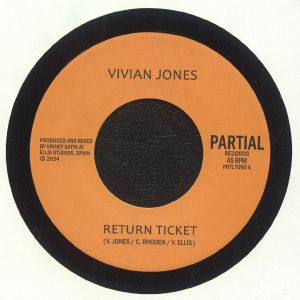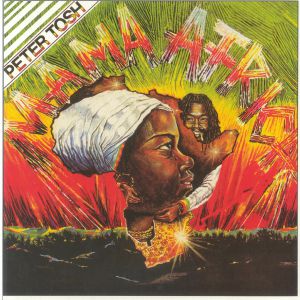
Juno Recommends Roots/Lovers Rock
Juno Recommends Roots/Lovers Rock: October 2024
4 Nov 2024
Read more...
1
Cat: ISLESEVEN 003. Rel: 04 Nov 24
Roots/Lovers Rock
out of stock $12.19
2
Review: Christine McNabb's UK lovers' 12" soul rarity, 'Love You / Combination', originally self-released in 1981. With backing vocals from Caron Wheeler, Black Slate's rhythm section and the in-house musicians at Eve Studios in Brockley, South London, this is a highly toned waft of steam; McNabb sings in a whistle register, insisting we're her one and only as she launches into a bopping improvisation near the midpoint, as an irresistible funk line chugs below, aplomb. 'Combination' is the name of the minimalised instrumental version: both tracks are standalone greats, and draw their inspirations from Afropop icons like Miriam Makeba, despite there being some crossover and cash-in on the emerging UK lovers' rock market.
...Read more
in stock $18.01
3
Cat: PARK 1055. Rel: 04 Nov 24
Roots/Lovers Rock
Review: Sofia Manari and Inokasira Rangers are not strangers to working together on their own unique covers of some classic sounds, all reworked into fresh dub grooves. This time they turn their focus to 'First Love, which is a lush listen with Manari's soothing and sultry vocal delivery. On the flip is another laid-back dub sound with a constant rhythmic pulse, natty chords and more clean and soulful vocals from Manari making this a sweet little 7" from Japan's finest, Parktone.
in stock $15.51
4
in stock $13.02
5
Review: R Zee Jackson's 'Row Fisherman Row EP', released on Jamwax, is a smooth fusion of roots and lovers rock. Born in Clarendon, Jamaica, Jackson (also known as Esso Jaxxon or Castro Pink) eventually moved to the United States in 1973 and later settled in Canada. There, he connected with key figures in the reggae scene, including Oswald Creary of Half Moon Studio, Doug of Comfort Sounds, and the legendary Jackie Mittoo. The EP kicks off with the title track, 'Row Fisherman Row', a melodic roots rock jam enriched with smooth dub elements. The warm, laid-back groove sets the tone, followed by 'Blackheart Man', where a deep, wobbling bass carries a more traditional reggae sound. On Side-2, 'Long Long Time' is a spiritual, echo-heavy vibe that exudes class and depth. Jackson continues to contribute to the reggae community as both a performer and producer, keeping the spirit of roots music alive.
...Read more
in stock $24.12
6
Cat: JGM 7020. Rel: 07 Oct 24
Roots/Lovers Rock
Review: Freddie McGregor's 'No Competition', originally released in 1981, is a rare gem from the roots and lovers rock scene that has been gaining renewed attention in the underground. Now here reissued, this track showcases McGregor's smooth and timeless reggae style, reminiscent of Bob Marley's classic sound. Backed by the One Vibe Band, McGregor delivers a classy, uplifting reggae tune that radiates warmth and authenticity, marking it as a standout in his extensive catalogue. On the flip side, Joe Gibbs & The Professionals provide 'Don't Try It', an instrumental counterpart that offers a stripped-down version of the original. Their rendition is a deep, mostly instrumental dub version that emphasises rhythm and bass, allowing the groove to take center stage.
...Read more
in stock $10.82
7
Review: This wonderful horn-led instrumental gem from Chris Petter and Dave Fullwood in their Love Grocer guise makes its first ever appearance on 7". Originally released on a Dubhead 10" featuring a Cheshire Cat vocal in 2000 and then also on the Rocking with the Love Grocer album on Dubhead in 2001, this one has long been a favourite and rightly so: it shows their signature take on dubbed-out rhythms and finds them weaving in some nice hypnotic melodies with great trumpet pads bringing the good vibes.
in stock $15.80
8
Review: Judah Tafari's new 7" Great Escape / Bezos vs. Musk delivers a potent dose of classic roots reggae with deeply spiritual Rastafari themes. Though not widely known, Judah Eskender Tafari has garnered a dedicated following through his work since the late '70s. His music continues to resonate in roots reggae sound systems and DJ sets, maintaining relevance nearly fifty years later. On Great Escape, produced by Victor Axelrod for Daptone, Tafari reflects on humanity's quest for salvation, drawing on Old Testament imagery. The track's lush, authentic roots production allows Tafari's earnest vocals to shine, reminding listeners of the powerful spiritual messages that have always defined his work. On Side-2, 'Bezos vs. Musk,' adds a contemporary twist, showcasing Tafari's ability to remain both relevant an rooted in his spiritual mission.
...Read more
in stock $7.76
9
Review: Fat Freddy's Drop returns with their latest studio album, SLO MO, a vibrant exploration of rhythm and soul that harnases their exhilarating live performances. Described by band member Fitchie as "afro rhythmic soul music," the album reflects a unique blend of influences from Polynesia, showcasing the group's distinctive sound. Recorded in their Wellington-based BAYS studio, this sixth album marks a significant evolution, aiming to encapsulate the energy and emotion of their celebrated live shows. Comprising nine tracks, SLO MO is here on double vinyl, allowing listeners to engage with the album as a cohesive artistic experience. As the album progresses, Joe Dukie's haunting vocals invite introspection, creating a spectral quality that resonates deeply. The cover art, created by Aotearoa artist Dan Tippett, transports viewers to a dreamlike, prehistoric forest, perfectly reflecting the album's themes of connection and renewal. With SLO MO, Fat Freddy's Drop once again proves their ability to push musical boundaries while staying true to their roots, delivering a powerful statement of resilience and creativity.
...Read more
out of stock $35.47
10
Review: The limited edition deluxe double vinyl release of 'SLO MO' is here, featuring a stunning holographic overlay that matches the album's deep, immersive sound. Freddy's latest studio album is a nine-track journey packed with bass-heavy beats, offering both redemption and resolution. Described by Fitchie, the group's beatmaker, as "Afro rhythmic soul music," 'SLO MO' explores the rich intersection of Black music through a Polynesian lens. This strictly limited pressing is a celebration of rhythm, soul and culture, making it an essential pick-up for vinyl collectors and fans of bold, genre-defying sounds.
...Read more
in stock $32.70
11
Review: A roots reggae vocal trio, Israel Vibration was modeled after the tradition of Culture, whom they recall in both their harmonies and their politically-charged Rasta concerns. On Praises, the group is backed by the crack reggae rhythm unit the Roots Radics as well as the RAS Brass, while lead vocals and songwriting duties are spread out among the core unit. The subject matter is a laundry list of Rasta issues, including social injustice, Jah, the threat of war and positive vibrations. Sage, nourishing itals of sound spring from our speakers like delectable dub treats, as the trio talents of Apple, Skelly and Wiss (Lascelle Bulgin, Cecil Spence and Albert Craig) effuse from this fervent ninth reggae album by the band, first released on Real Authentic Sound.
...Read more
in stock $30.21
12
Review: Jahug is a brand new label that kicks off with a heavy rhythm from Carl I aka producer Carl Gayle. 'Deputy Dawg' is the tune and it has a low-slung low end that is couched in plenty of warm reverb. The vocals up top are raw and unaffected and filled with a sense of yearning. Add in some fresh hits and classic reggae guitar riffs and you have a nice fresh roots cut. On the flip, more horns are brought to the fore to give it some subtle warrior energy while extra effects and fleshy reverb all add more weight to the original.
in stock $10.82
13
in stock $19.68
14
Review: After the successful digital release of Paulette Tajah's Journal Of A Butterfly EP, it's time for these sounds to make their way to vinyl for the first time ever. The of the pressing is quality is outstanding which means this is the best way to soak in the sounds of this great album. Each song is brilliantly recorded and Tajah's artistry is laid bare with fat dub drums, rich low ends and plenty of signature soulful vocals from Tajah who can sound aloof, emotive, empowering and plenty in between, as she shows here.
in stock $23.27
15
Review: Horace Andy's Midnight Rocker, produced by Adrian Sherwood and released on On-U Sound, is a stunning late-career triumph that reimagines classic tracks and introduces fresh material. Known for his iconic vibrato-heavy falsetto, Andy has long been a defining voice in dub, having first gained fame in the 1970s through collaborations with Bunny Lee. Over the years, his voice has deepened and grown richer, adding layers of vulnerability and maturity that are beautifully showcased in this album. Sherwood's production enhances Andy's vocals by stripping down the original arrangements and introducing live instrumentation, which brings a modern clarity to the classic dub sound. Tracks like the reworked 'This Must Be Hell' lose their jazz piano but gain a driving bassline, making the song more dancefloor-ready. Similarly, the updated version of 'Materialis' uses a synth bass to amplify the emotional urgency in Andy's vocals, while Mr Bassie transforms from a plea into a powerful declaration. New songs like 'Watch Over Them' and 'Try Love' take Andy into the realm of lover's rock, with his voice perfectly complementing the syncopated rhythms. Throughout Midnight Rocker, Sherwood draws out some of Andy's most compelling performances, particularly on the intense 'Safe from Harm'. This album is a testament to Andy's enduring talent and leaves listeners eager for what's next from the 71-year-old legend.
...Read more
in stock $29.11
16
Review: Les Rhythmes Ruban's tunnel-visioned modus operandi is to churn out some of the toppest reggae and ambient dub on the East side of the Channel. This time they welcome twin producers Blundetto (Max Guiguet) and Pupajim (Jean-Marie Cariolet) to their roster, for the ambitious and sensorial collaborative version record Tancardub, in turn a comprehensive dubbing of their 2024 record Tancarville. Guiguet is a longtime favourite on the French dub, electro, jazz and all-else underground, having made his initial way in Dijon before cutting his teeth as the seasoner of many a vocal artist's track, including Akale Wube and Hindi Zahra. Cariolet, meanwhile, is a favourite member of the renowed dub troupe Stand High Patrol, and has been at and about it since at least 2009. Together, Tancarville was an impressive roots rollick, with 'Groenland' standing out as the vespertine vocal number; but system huggers will appreciate this version much better, since Tancardub wholly commands a crisper yet stiffer, rattlier POV on an initially serene album.
...Read more
in stock $23.27
17
in stock $16.35
18
Cat: TRSCHA 1. Rel: 30 Sep 24
Roots/Lovers Rock
in stock $16.07
19
in stock $16.07
20
Review: Ronnie Davis' 'No Man Is Free' is a powerful roots reggae anthem that has everything a good tune needs to in order to make an impact on the head, heart and heel, namely soulful melodies with conscious lyrics. Released in the 1970s, the track addresses themes of oppression, inequality and the quest for freedom and reflects the socio-political struggles of the time. Davis' deep, resonant vocals ride atop a rich rhythmic backing which is typical of the era's classic reggae sound. Known for his work with The Itals and as a solo artist, Davis delivers a message of unity and resistance here that reminds us that true freedom is a shared human right, not just an individual pursuit.
...Read more
in stock $17.19
21
Review: Michael Exodus aka JAH SEED is an Italian producer and contemporary dub master who heads up the Dub-O-Matic label. His work brings a blend of electronic sounds mixed with the analogue dub traditions and this latest outing is another fine example of that. This new white vinyl 12" opens with the clean digi-dub sounds and warrior leads of 'Smash Down The Tower' and trundles on through 'Dub Down The Tower', the liquid rhythms of 'Dub The Water' and more moody sounds of 'Water Flow'. A great blend of the old and the new, then.
in stock $18.29
22
out of stock $15.25
23
Review: Lloyd Coxsone's Tribes Man label is having some of its key moments reissued and there is no argument about this one featuring Fred Locks. It is sheer quality roots and vocal lovers rock from the seventies that has stood the test of time but still bears all the hallmarks of that golden era. 'Voice Of The Poor' is a heavy, swaggering rhythm with dumpy kicks drums and subtle harmonica worked into the guitar riffs. The butter vocal up top is filled with passion and pain and, as usual, if you flip this over you get a dub that has a little more musical playfulness in the keys.
...Read more
in stock $16.07
24
out of stock $15.25
25
in stock $31.04
26
in stock $23.56
27
Cat: DKR 281. Rel: 14 Oct 24
Roots/Lovers Rock
in stock $16.35
28
Review: Let's Get It On was the seventh album from reggae pioneer Ken Boothe, and it was produced by Lloyd Charmers and released by Trojan Records in 1974. This classic album gets a deserving and limited, numbered, 180-gram pressing on orange vinyl that perfectly showcases Boothe's signature style. The album features notable tracks such as Syl Johnson's well-known cover of 'Is It Because I'm Black' and the iconic 'Let's Get It On' which was originally by Marvin Gaye. Boothe's smooth vocals and the album's rich instrumentation make this a superb listen and a great reminder of Boothe's influences on the genre.
...Read more
in stock $34.36
29
Review: UK dub label Partial Records welcomes dub cats Vivian Jones and Vinney Satta for a new split 7". Jones's 'Return Ticket' kicks off in slow, libidinous fashion with sparse wooden rim shots and joyous horns bursting out of the laid back rhythm while the wailing vocals bring a traditional touch. On the flip, Satta steps up for a dub out version of the original which is more roomy, liquid and heady for those late night sessions when you can hook on to the endlessly echoing chords and bass. Two classy sounds with a contemporary twist.
in stock $15.25
30
Review: Peter Tosh's Mama Africa album, now reissued on red vinyl, features the legendary reggae artist at his finest. Combining reggae with African musical influences, the album opens with a powerful ode to the motherland in its title track. Tosh's adaptation of Chuck Berry's 'Johnny B. Goode' is another standout, blending rock guitar with a reggae rhythm and relocating the lyrics to Jamaica, further cementing his crossover appeal. The Tamlins' backing vocals enrich three tracks and Donald Kinsey's impressive guitar work is featured throughout. Tosh revisits his Wailers days with a reworked version of 'Maga Dog' and the fan-favorite 'Stop That Train'. His militancy comes through on 'Peace Treaty'. a scathing critique adorned with sound effects of gunfire. Tracks like 'Not Gonna Give Up' aim to uplift Africa's people, while 'Feel No Way' is a minimalistic rub-a-dub tune with understated backing. Tosh's unrelenting advocacy for justice and his Rastafarian beliefs permeate the album, reflecting his rebellious spirit and commitment to social equality. His solo career, following the dissolution of The Wailers in 1974, was defined by a fearless approach to music and activism, until his life was tragically cut short in 1987. Mama Africa remains one of Tosh's most significant works.
...Read more
in stock $31.04

 USD
USD




